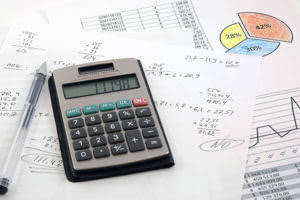
For individuals, these expenses are often captured in budgeting apps or personal finance software under a miscellaneous category. This allows for a more granular tracking of spending, which can be reviewed https://www.bookstime.com/ periodically to identify patterns or areas where savings can be made. The use of such tools aids in the categorization and management of these sporadic expenses, providing a clearer financial picture over time. Miscellaneous expense refers to any small, infrequent, and non-operating expense that cannot be categorized into a specific account. These expenses are not directly related to the primary business activities and can include various items such as office supplies, bank fees, or travel expenses. The proper classification of these expenses is vital for accurate financial analysis and effective cost management strategies.
Maximising Tax Deductions
Come tax season, you can write off your miscellaneous expenses in the same way you claim your other business operating costs on your tax returns. Essential expenses are core business costs (e.g., rent, payroll), while miscellaneous expenses are smaller, non-recurring costs that don’t fit into major categories. Properly tracking and categorizing miscellaneous expenses isn’t just good bookkeeping; it helps businesses stay financially organized, maximize deductions, and avoid compliance issues. Miscellaneous expenses can be defined as a cost that generally does not fit any specific account ledger or tax category.

Keep track of business spend and expenses with BILL
It includes airfare, accommodations, and meals while away from home on business trips. The tax treatment of miscellaneous expenses depends on their nature rather than their classification in your books. The IRS doesn’t care what you call an expense internally – they care about its actual business purpose. A growing SaaS startup, found their miscellaneous expenses climbing from 3% to 8% of total operating expenses during a rapid scaling phase.
- So it will almost seem too good to be true to hear that your hobbies are tax-deductible.
- It also helps them make good decisions about using their resources and create detailed plans for their overall budgeting strategies.
- “Here’s what taxpayers need to know about paying taxes on their hobby activities.” Accessed Aug 13, 2024.
- This discernment is crucial in making informed spending decisions that align with long-term financial objectives.
- In this case, the miscellaneous expense account could help keep track of the cost of the contractor’s services and any other costs, like travel costs, that went along with them.
- That’s why you need to maintain a record of miscellaneous expenses in the ledger.
Stay updated with Fyle by signing up for our newsletter

A tax deduction, for example, could be made for work clothes required for safety reasons, such as PPE wear. Keeping track of business expenses may seem tedious, but with doola Bookkeeping, it becomes effortless. Our All-in-One Accounting solution provides a seamless way to managing your finances, from tracking expenses and reconciling transactions to generating tax-ready financial statements.

In personal finance, these might be unexpected outlays for household items or one-off entertainment expenses. To begin, we will provide a clear definition of what miscellaneous expenses entail in the accounting context, accompanied by real-world examples to illustrate their practical application. We will examine the impact of miscellaneous expenses on a company’s income statement and balance sheet, shedding light on their implications for financial performance and stability. Miscellaneous expenses are infrequent costs that are not included in regular business expenditures and also vary in size and time because they are not predictable.
- Many business owners think that start-up costs include all the costs of starting a business.
- Most miscellaneous expenses are variable costs that fluctuate with business activity.
- If a business repays over $3,000 that was previously counted as income under a claim of right, it may be eligible for a deduction or credit.
- A bad debt expense is recorded for any specific receivables that are unlikely to pay back (e.g., any customers who have filed for bankruptcy).
- Join today and create your own account, or try FreshBooks free, using our free 30-day trial.
- Even though miscellaneous expenses tend to be smaller, more minor purchases by nature, they can still add up and detract from a business’s profitability.
Operating, General & Administrative expenses
However, one-off advertising or marketing spend may be considered a miscellaneous expense. Unexpected or emergency expenses the business incurs can be classified as miscellaneous expenses. As we mentioned above, this typically includes labor miscellaneous expenses costs, materials, and overhead expenses that businesses have budgeted for a given quarter or year.

The Importance of Tracking Miscellaneous Expenses in Accounting
It is best to research and compare prices before purchasing for business purposes. Businesses need to see these costs more clearly so that they can manage their money better. These expenses can help companies identify the areas of potential growth or cost savings. Also known as sundry, out-of-pocket, general or incidental expenses, different companies refer to miscellaneous costs differently depending on the industry and context. Learn how to track billable expense income efficiently to improve profitability, ensure tax compliance, and streamline financial management with the right tools. Under US GAAP, research and development costs are recorded as an expense in the accounting period in which they are incurred.

Miscellaneous costs are normal, necessary, and reasonable costs that a business must pay to run. These expenses may include legal fees, professional fees, business travel, and automobile use for business purposes. Also, employers with employees may be able to deduct the premiums balance sheet they pay for workers’ compensation insurance. Many business owners think that start-up costs include all the costs of starting a business.
Finance Cost
The extra charges levied when conducting bank transfers from one account to another are one type of miscellaneous expense. They will not benefit your business in any way and hence, they are expelled from the list of tax deductible. Miscellaneous expenses refer to irregular, typically minor costs that businesses incur for various purposes, such as equipment depreciation, processing bank transfers, or marketing activities. Also known as indirect expenses, these costs do not fall into your regular expense category and are usually overlooked when filing taxes.
